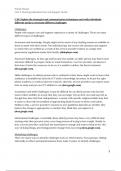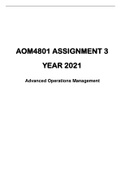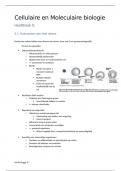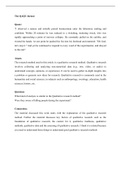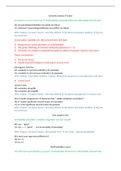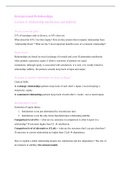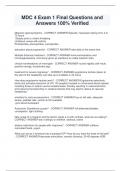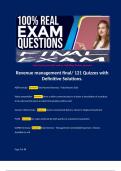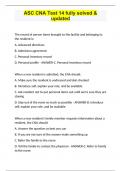Komal Hassan
Unit 5: Meeting Individual Care and Support Needs
C.P4: Explain the strategies and communication techniques used with individuals
different needs to overcome different challenges
Challenges:
People who require care and support experience a variety of challenges. There are many
different types of challenges:
Awareness and knowledge, People might not be aware of any funding resources available to
them to assist with their needs. The individual may not receive the attention and support
to which they are entitled as a result of the service provider's failure to comply with
government regulations inside their facility (slideplayer.com).
Practical Challenges, As they age and become less mobile, an older person may find it more
and more difficult to prepare meals or wash themselves. A service provider can discover
that since it lacks the resources to do so, it is unable to deliver the finest treatment
(docs.google.com).
Skills challenges: An elderly person who is confined to their home might want to learn what
assistance is available but lacks the ICT tools or knowledge necessary to locate the right
phone numbers or conduct internet research. Likewise, service providers can require some
time to study and put new ICT abilities to use (docs.google.com).
Acceptance and belief challenges, It may be difficult for an elderly person who has lost
most of their mobility to accept that they can no longer rely on their own and may feel as
though they have lost their independence. A senior with specific religious beliefs may find
it easier to deal with the problem of approaching death because of those convictions.
Similar to this, a service provider's reaction to new guidelines depends on whether they
believe the change is appropriate or whether they think they can adjust to it
(docs.google.com).
Motivational challenges, A morbidly obese elderly person may have a very difficult time
starting what they perceive to be a very long process of trying to lose weight. Similar to
this, a service provider could lack the motivation to change and want to keep to the "old
way" of doing things, preventing positive change from occurring (docs.google.com).
Identifying challenges:
There are many ways to identify challenges such as: Observations, Focus groups, Talking
informally to others and Questionnaires these make it easier to identify challenges.
1
, Komal Hassan
Unit 5: Meeting Individual Care and Support Needs
Observation is one of the most crucial abilities for a Health and Social Care job. With the
use of this ability, you can spot issues as they arise and take action before they worsen. Any
changes in behaviour should be noted and observed since they could indicate a problem
that needs to be addressed. For instance, observing a change in a person's gait, looking out
for abuse or carelessness, or identifying any areas of care that should be improved, such
hand washing (docs.google.com).
Focus groups are normally composed of no more than eight participants. They are invited
to participate in a session led by a facilitator and sometimes an assistant to talk about a
specific topic, such as providing new early intervention services. Instead of making
decisions, the group discusses issues and exchanges opinions. To make circumstances
clearer and highlight difficulties, information is gathered. Then, health and social care
agencies can offer the assistance required to handle these difficulties (docs.google.com).
Talking informally to others, without making the person feel questioned or observed,
problems can be identified by simply conversing with them and utilising everyday English
instead of complexity and technical terms. This might be used to get feedback on a novel
procedure being implemented in a dentist office or ward of a hospital (docs.google.com).
Questionnaires are collections of questions intended to gather opinions from people on
specific subjects. They could be utilised, for instance, when a primary care trust needs
input from a group of local general practitioners who work in practises. Because it can
gather a lot of data from a big number of individuals much faster than other approaches, a
well-designed questionnaire is beneficial. Additionally, administering surveys is not
particularly expensive. They do not, however, permit follow-up inquiries, and the response
rate can be minimal (docs.google.com).
C.P4: Explain the strategies and communication techniques used with individuals
different needs to overcome different challenges
C.D2: Justify the strategies and techniques used to overcome ethical issues and
challenges experienced by individuals with different needs when planning and providing
care.
To overcome challenges is for health and social care professionals to go past any difficulties
that the service user or staff workers may be experiencing.
Educational information materials:
Various types of educational information resources are available, including pamphlets,
posters, games, slide shows, wall displays, CD-ROMs, DVDs, flyers, newspaper or magazine
ads or articles, TV and radio coverage, and web-based resources. These resources educate
2
Unit 5: Meeting Individual Care and Support Needs
C.P4: Explain the strategies and communication techniques used with individuals
different needs to overcome different challenges
Challenges:
People who require care and support experience a variety of challenges. There are many
different types of challenges:
Awareness and knowledge, People might not be aware of any funding resources available to
them to assist with their needs. The individual may not receive the attention and support
to which they are entitled as a result of the service provider's failure to comply with
government regulations inside their facility (slideplayer.com).
Practical Challenges, As they age and become less mobile, an older person may find it more
and more difficult to prepare meals or wash themselves. A service provider can discover
that since it lacks the resources to do so, it is unable to deliver the finest treatment
(docs.google.com).
Skills challenges: An elderly person who is confined to their home might want to learn what
assistance is available but lacks the ICT tools or knowledge necessary to locate the right
phone numbers or conduct internet research. Likewise, service providers can require some
time to study and put new ICT abilities to use (docs.google.com).
Acceptance and belief challenges, It may be difficult for an elderly person who has lost
most of their mobility to accept that they can no longer rely on their own and may feel as
though they have lost their independence. A senior with specific religious beliefs may find
it easier to deal with the problem of approaching death because of those convictions.
Similar to this, a service provider's reaction to new guidelines depends on whether they
believe the change is appropriate or whether they think they can adjust to it
(docs.google.com).
Motivational challenges, A morbidly obese elderly person may have a very difficult time
starting what they perceive to be a very long process of trying to lose weight. Similar to
this, a service provider could lack the motivation to change and want to keep to the "old
way" of doing things, preventing positive change from occurring (docs.google.com).
Identifying challenges:
There are many ways to identify challenges such as: Observations, Focus groups, Talking
informally to others and Questionnaires these make it easier to identify challenges.
1
, Komal Hassan
Unit 5: Meeting Individual Care and Support Needs
Observation is one of the most crucial abilities for a Health and Social Care job. With the
use of this ability, you can spot issues as they arise and take action before they worsen. Any
changes in behaviour should be noted and observed since they could indicate a problem
that needs to be addressed. For instance, observing a change in a person's gait, looking out
for abuse or carelessness, or identifying any areas of care that should be improved, such
hand washing (docs.google.com).
Focus groups are normally composed of no more than eight participants. They are invited
to participate in a session led by a facilitator and sometimes an assistant to talk about a
specific topic, such as providing new early intervention services. Instead of making
decisions, the group discusses issues and exchanges opinions. To make circumstances
clearer and highlight difficulties, information is gathered. Then, health and social care
agencies can offer the assistance required to handle these difficulties (docs.google.com).
Talking informally to others, without making the person feel questioned or observed,
problems can be identified by simply conversing with them and utilising everyday English
instead of complexity and technical terms. This might be used to get feedback on a novel
procedure being implemented in a dentist office or ward of a hospital (docs.google.com).
Questionnaires are collections of questions intended to gather opinions from people on
specific subjects. They could be utilised, for instance, when a primary care trust needs
input from a group of local general practitioners who work in practises. Because it can
gather a lot of data from a big number of individuals much faster than other approaches, a
well-designed questionnaire is beneficial. Additionally, administering surveys is not
particularly expensive. They do not, however, permit follow-up inquiries, and the response
rate can be minimal (docs.google.com).
C.P4: Explain the strategies and communication techniques used with individuals
different needs to overcome different challenges
C.D2: Justify the strategies and techniques used to overcome ethical issues and
challenges experienced by individuals with different needs when planning and providing
care.
To overcome challenges is for health and social care professionals to go past any difficulties
that the service user or staff workers may be experiencing.
Educational information materials:
Various types of educational information resources are available, including pamphlets,
posters, games, slide shows, wall displays, CD-ROMs, DVDs, flyers, newspaper or magazine
ads or articles, TV and radio coverage, and web-based resources. These resources educate
2

